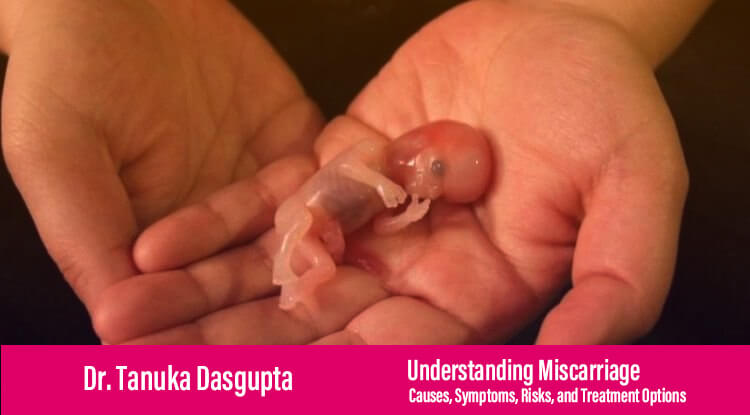Miscarriage is a deeply emotional and challenging experience that affects numerous individuals and couples worldwide. While it is a common occurrence, the reasons behind miscarriage can be complex and multifaceted. This blog aims to shed light on the causes, symptoms, risks, and potential treatment options for miscarriage within a concise 750 words.
Causes of Miscarriage:
- Chromosomal Abnormalities: The majority of miscarriages occur due to chromosomal abnormalities in the developing embryo. These genetic irregularities can arise spontaneously during conception or cell division, leading to an unviable pregnancy.
- Maternal Age: Advanced maternal age, typically defined as 35 and older, increases the risk of miscarriage. As a woman ages, the likelihood of chromosomal abnormalities in her eggs rises, contributing to a higher incidence of pregnancy loss.
- Health Conditions: Pre-existing health conditions such as diabetes, thyroid disorders, autoimmune diseases, and certain infections can increase the risk of miscarriage. Proper management and monitoring of these conditions are crucial during pregnancy.
- Uterine Abnormalities: Structural abnormalities in the uterus, such as fibroids or a septum, can impact implantation and the overall health of the pregnancy, potentially leading to miscarriage.
- Lifestyle Factors: Unhealthy lifestyle choices, including smoking, excessive alcohol consumption, and illicit drug use, can elevate the risk of miscarriage. Adopting a healthy lifestyle before conception can positively impact pregnancy outcomes.
Symptoms of Miscarriage:
- Vaginal Bleeding: The most common and recognizable symptom of miscarriage is vaginal bleeding. It can range from light spotting to heavy bleeding and is often accompanied by abdominal cramping.
- Abdominal Pain: Women experiencing a miscarriage may feel abdominal pain or cramping, similar to menstrual cramps but possibly more intense.
- Passing Tissue: In some cases, passing clots or tissue from the vagina may occur. This can be a distressing experience and is often accompanied by pain.
- Decreased Pregnancy Symptoms: A sudden decrease or loss of pregnancy symptoms, such as breast tenderness and morning sickness, may indicate a miscarriage.
Risks and Risk Factors:
- Previous Miscarriage: Women who have experienced one or more previous miscarriages may be at a slightly higher risk for subsequent losses.
- Advanced Maternal Age: As mentioned earlier, maternal age is a significant risk factor for miscarriage, with the risk increasing as a woman gets older.
- Multiple Pregnancies: Women carrying twins or higher-order multiples may face an increased risk of miscarriage compared to those with singleton pregnancies.
- Infections: Infections, particularly those affecting the reproductive organs, can pose a risk to the developing pregnancy.
Treatment Options:
- Expectant Management: In some cases, the body naturally expels the pregnancy tissue, and no medical intervention is necessary. This is known as expectant management, where healthcare providers monitor the process without intervening.
- Medication: Medications such as misoprostol may be prescribed to help the body expel the pregnancy tissue. This method is often chosen when expectant management is not progressing as expected.
- Surgical Intervention: If the body does not expel the pregnancy tissue naturally, a surgical procedure called dilation and curettage (D&C) may be recommended to remove the remaining tissue from the uterus.
- Emotional Support and Counseling: Dealing with the emotional aftermath of a miscarriage is crucial, and seeking emotional support from friends, family, or mental health professionals can aid in the healing process.
Conclusion:
Understanding the causes, symptoms, risks, and treatment options for miscarriage is an essential step in providing support to individuals and couples who have experienced this loss. While not all miscarriages can be prevented, awareness of risk factors and early prenatal care can contribute to healthier pregnancies. It’s crucial to approach the topic with empathy, breaking the silence that often surrounds miscarriage and fostering a culture of understanding and support for those navigating this challenging journey. Remember, seeking professional guidance and emotional support is a sign of strength, and healing is a unique and ongoing process.


